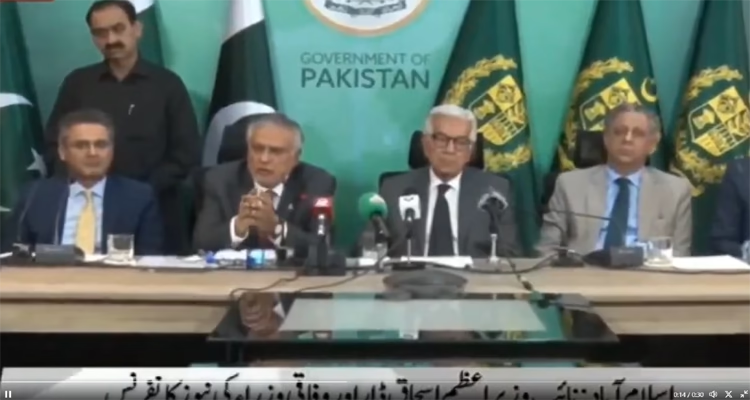
New Delhi/Islamabad: In a provocative remark amid escalating tensions, Pakistan’s Deputy Prime Minister and Foreign Minister Ishaq Dar referred to the perpetrators of the recent Pahalgam terror attack as “freedom fighters,” sparking outrage in India and drawing sharp international criticism.
The remarks came in the wake of the April 22 massacre at Baisaran meadows in Jammu and Kashmir, where 26 tourists—predominantly Hindus, including a Nepali national—were brutally killed by terrorists disguised in military fatigues. The attack has sparked widespread outrage across India and drawn international condemnation.
Pakistan Deputy Prime Minister and Foreign Minister Ishaq Dar calls
Pahalgam Islamic terrorists as
Freedom fighters’
And our liberals have Aman ki Asha with this Terrorist country
😡😡😡 pic.twitter.com/rrWUxWtArJ— Sheetal Chopra 🇮🇳 (@SheetalPronamo) April 24, 2025
Reacting sharply to Dar’s statement, former Pakistani cricketer Danish Kaneria, a Hindu, slammed the remarks as an “open admission of state-sponsored terrorism.”
When the Deputy Prime Minister of Pakistan calls terrorists “freedom fighters,” it’s not just a disgrace — it’s an open admission of state-sponsored terrorism. pic.twitter.com/QlS1UDzq20
— Danish Kaneria (@DanishKaneria61) April 24, 2025
In response, India on Thursday announced a slew of stringent measures, including the suspension of the 1960 Indus Waters Treaty—an agreement brokered by the World Bank that has withstood even wartime hostilities between the two nations. India cited Pakistan’s continued support for cross-border terrorism and diplomatic intransigence as justification for the move.
Additionally, India has ordered all Pakistani nationals to exit the country by April 29, canceled all visas issued under SAARC provisions, and directed a sharp downsizing of Pakistan’s diplomatic staff in New Delhi.
In a retaliatory move, Islamabad announced it would reduce India’s diplomatic presence at its High Commission to 30 personnel. Pakistan also issued a stark warning, declaring that any attempt to divert or obstruct its share of the Indus waters would be deemed an “act of war” and met with “full-spectrum retaliation.”
The situation has turned dire for Pakistan, as India has reportedly halted the flow of water from the Indus River system—including the Jhelum, Chenab, Ravi, Beas, and Sutlej rivers—threatening water access for tens of millions in the country.
The Indus Waters Treaty, signed on September 19, 1960, has been hailed as a rare success in India-Pakistan relations, enduring through the wars of 1965, 1971, and 1999. Its indefinite suspension now marks a historic rupture.
In a further escalation, Pakistan has threatened to nullify all existing bilateral agreements, including the Simla Pact, intensifying fears of a full-blown diplomatic breakdown.
This standoff represents the most serious confrontation between the nuclear-armed neighbors since the 2019 Pulwama terror attack. With tensions at boiling point, New Delhi has signaled a hardline approach, asserting a zero-tolerance policy toward terrorism emanating from across the border.



